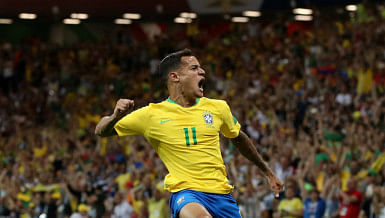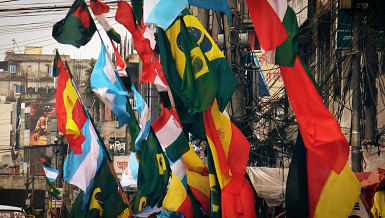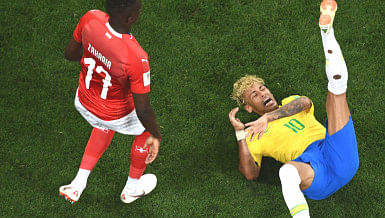Warriors! That is the word that describes Croatia the best.
Croatia has a short yet spectacular football history. A country (56,595 square km) half the size of Bangladesh has stormed into the final of World Cup for the first time. A nation that has five times less population than Dhaka have produced 23 footballers who have taken the country to the brink of becoming world champions.
How only four million people could build a team good enough to make it to the World Cup final, beating Argentina (43 million), England (66 million) and hosts Russia (144 million) along the way? What makes up Croatia? Why is Croatia so combative in football?
The answers lie in its history. War has made Croats tough, and football has given them a life. Croatia is football-crazy like Brazil, Argentina, Spain or Italy. It is the only sport people play, go to watch, care about and root for.
Croatia, however, did not even exist when Diego Maradona lifted the World Cup for Argentina in Mexico in 1986 and fell short of retaining the trophy in the final against Germany four years later.
Croatia's existence as a national team began in 1990 with a friendly match against the United States, which wasn't recognised by Fifa, the game's governing body. It was still a part of Yugoslavia then along with Serbia, Bosnia and Herzegovina, Montenegro, Macedonia, Slovenia and Kosovo. Croatia finally split in 1991 through a bloody war in the Balkans that witnessed the horrifying ethnic cleansing and bitter enmity between the nations which spoke almost identical languages and had been part of the same country for most part of a century.
Fifa recognition came in 1992, and the war-ravaged country caught the world by surprise within four years in the Euro 1996, where they were beaten by Germany in the quarterfinals. Yugoslavia had a long legacy in football dating back to 1913. Croatia certainly inherited those football genes and could come out strongly even as a fragmented country. It's just amazing how quickly Croatia got good, from a fledgling football nation to a formidable force.
Greater achievement came in the 1998 World Cup, when Croatia unveiled its first Golden Generation of footballers including Slaven Bilic, Zvonimir Boban and Davor Suker to the global audience, racing up to the semifinal against France. Unfortunately for them, there they came up against Zinedine Zidane, the new king of world football. Croatia were stooped with 2-1 defeat, but not before making their red-white chequered jersey famous on world stage.
'Yes, we can do it!' was the great example they set for future generations. They showed that it is possible to become a force-to-reckon-with in world football even with a limited pool of players.
Interestingly, it's time for another Golden Generation from Croatia that will take on France again, this time in the final today.
Most of their star players -- Luka Modric, Mario Mandzukic, Ivan Rakitic and Vedran Corluka -- were directly affected by the war. As children, they lived through horrifying events. They had to fight for their life, spread across Europe and grow up in war hang-ups. All these experiences have made them tough and highly nationalistic. Younger players were less directly affected, yet they remained highly motivated by memories of war of their families and friends.
That's why Croatia is a group of warriors: a dangerous side to defeat. And, inspiration from the 1998 game may not be enough for France this time in Russia. The match is certain to go down to the wire.
The writer is former Sports Editor of The Daily Star




 For all latest news, follow The Daily Star's Google News channel.
For all latest news, follow The Daily Star's Google News channel. 









Leave your comments